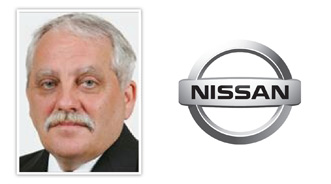Nissan Chief Product Officer Says Biggest Concern is Making Enough Cars

By subscribing, you agree to receive communications from Auto Remarketing and our partners in accordance with our Privacy Policy. We may share your information with select partners and sponsors who may contact you about their products and services. You may unsubscribe at any time.
YOKOHAMA, Japan –
According to one of Nissan’s top executives, the biggest problem the automaker faces today is “making enough cars.”
In a recent interview, the automaker’s chief performance officer and executive vice president Colin Dodge noted that as of the end of August, production was up 150,00 units when compared to last year.
Though that is a significant number in light of the recent natural disasters in Japan, Dodge stressed it still falls 3.7 percent below the company’s original business plan.
“ … so my understanding of the situation is we’ve got 80,000 still to recover to get back to the original BP (business plan). I think everybody is on track to do that,” Dodge said.
“So, six months after the tragedy that occurred in March, we’re producing now the BP plus about 5 percent. And at the moment, it won’t be exactly by model or by country, because life’s not as simple as that, but we’re making a recovery plan to get back to the original BP, and we have 80,000 to go,” he continued.
Moving on to break the production information down further into regions, Dodge explained the automaker is 50,000 units down in the U.S, 10,000 in Europe and 20,000 in Japan.
Subscribe to Auto Remarketing to stay informed and stay ahead.
By subscribing, you agree to receive communications from Auto Remarketing and our partners in accordance with our Privacy Policy. We may share your information with select partners and sponsors who may contact you about their products and services. You may unsubscribe at any time.
Further delving into the automaker’s production recovery, Dodge said, “We’re up in China against BP, but we’ve got 80,000 to catch back. So, if you’re a manufacturing guy, you’re making more cars now than we planned to, and in the market itself, my observation is we’ve recovered from the earthquake as a company, it seems like, about two months quicker than Toyota, and Honda is still not recovered.”
Additionally, Doge went into why he thinks the automaker’s recovery has been a “relatively” smooth process.
He referenced executive vice presidents Mitsuhiko Yamashita and Hiroto Saikawa’s work as well as the actions of the quake recovery committee and others when considering those who have contributed to the company’s swift recovery.
“I think a combination of the business continuity activities that EVP [Mitsuhiko] Yamashita and EVP [Hiroto] Saikawa took care of, and the action of the quake recovery committee, which was done under the chairmanship of COO [Toshiyuki] Shiga and 100 people in this building the day after the earthquake, seems to be best one,” Dodge asserted.
Though pleased with the condition of the company, Dodge says he “won’t be satisfied” until the automaker meets its original business plan.
“So, we’re in pretty good condition relatively, but until we’re back to BP, I personally won’t be satisfied. I am forecasting intuitively, but unless there is a massive change in consumer sentiment in the next six to eight weeks, we’ll get back to BP. We’re doing pretty good and relatively very, very well, but for me ‘good’ means ‘better than business plan’, so until then I’ll say we’re doing ‘relatively well,’” Dodge concluded.
Highlighting the automaker’s outlook for current global sales, Dodge says the problem lies with production issues: “making enough cars,” not the current debt crisis in Europe, failing strength of the yen in Japan or economic struggles in the U.S.
“At the moment, you’ve only got one problem — making enough cars. We’ve got to stop watching CNN or reading the Internet about what may happen in three or four months time. I’ve got back orders for 30,000 cars in Mexico, 20,000 in Latin America. In Europe, even though they’re working seven days a week with shifts, I’ve got orders going back for two months on Qashqai. Versa, which we’ve just launched in Mexico, is unbelievable — we’ve got 26.4 percent share in Mexico now,” said Dodge.
He also went on to note the current global economic struggles are having little to no effect on consumer behavior in relation to Nissan vehicles.
“The products that we have coming through and the consumer behavior, and what you see on CNN — there seems to be no relationship at the moment. I don’t know if that’s just Nissan, but I said to my people, ‘Will you stop watching CNN and get to the factories, make me more cars, and stop worrying.’ I’ve got one problem today — making enough cars to satisfy our customer orders,” he further explained.
Commenting on the current weak state of the yen, Dodge said, “The yen, of course, is unfortunate. However, we’re doing our best to mitigate the effects of the yen. We’re praying for the Japanese government to do something in terms of quantitative easing. If not, it’s looking pretty dark, obviously, but I wouldn’t be depressed for the next six to eight weeks. Let’s make some cars, and sell the cars in the system.”


